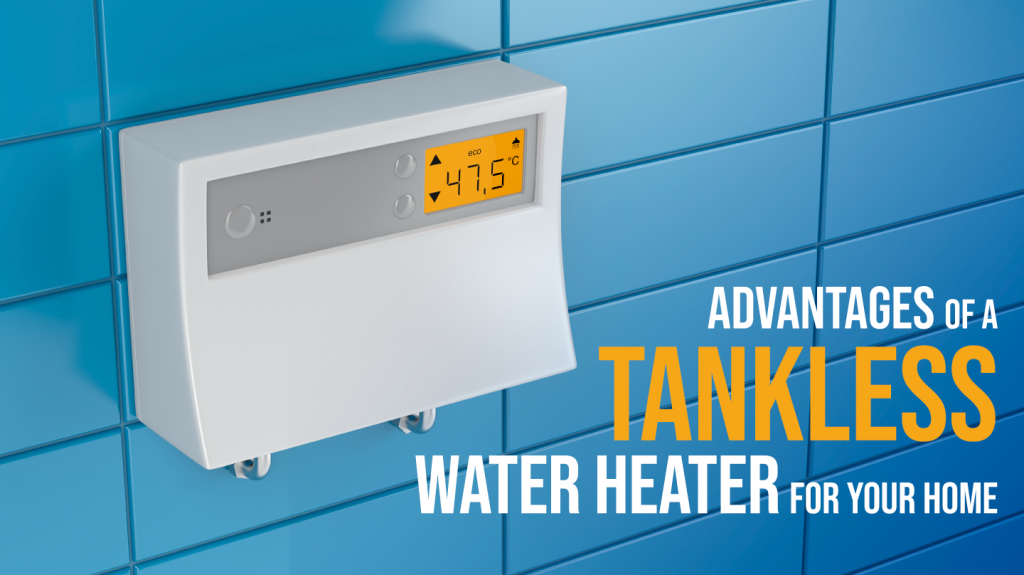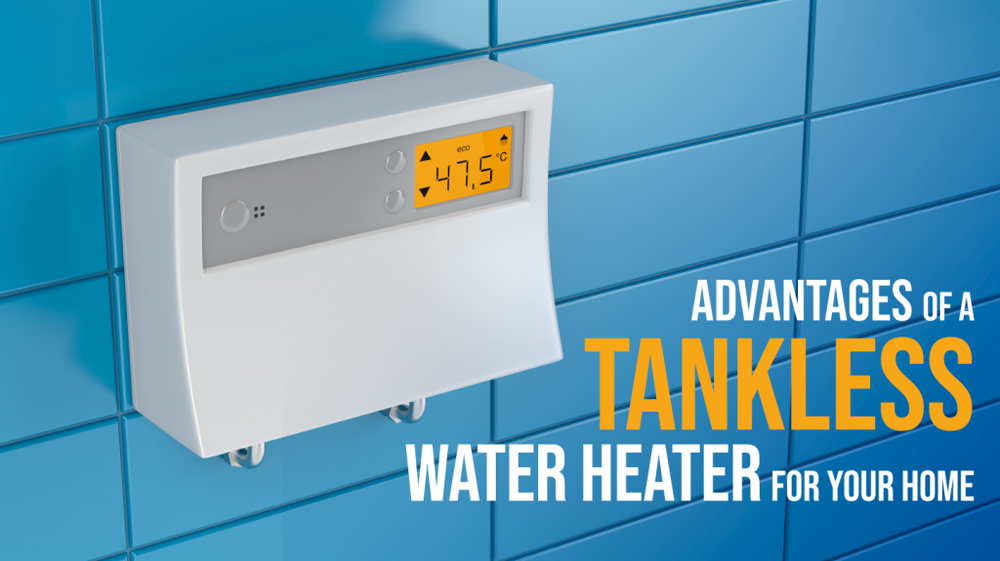There are so many choices laid out before you when building a new home, from choosing between countertops and flooring to deciding on interior paint colors. Have you ever considered adding a tankless water heater?
Most people don’t give it much thought, but it may make sense to install one of these systems—also known as a “demand-type” water heater—over a standard tank-based unit.
Convenience for your entire family
An appealing feature of tankless water heaters is their ability to provide continuous hot water. Unlike standard water heaters, which heat a predetermined amount of water and then store it in a tank, tankless water heaters move water through a heating element as its needed at the tap. The result is hot water that never “runs out” during a high-demand point of the day, such as in the morning or at night.
If you’ve ever experienced the feeling of being the last one to shower and running out of hot water, you’ll know the peace of mind to be gained by not ever having to think or worry about that again.
Save energy, save money
According to the U.S. Department of Energy, tankless water heaters are around 24-34% more energy-efficient than standard water heaters in most households. Demand-type systems use less energy because they heat water only as its needed, in contrast to tank units that continually keep a reserve of hot water ready for use—even when you’re unlikely to need it.
Considering that most families spent about 20% of their energy bill on heating water for their home, this reduced energy use can quickly add up to significant, year-round savings on your bills. If you’re weighing the pros and cons of adding a tankless water heaterto your new home, talk to a local plumber about just how much you can save over the lifetime of the system and your home. In some cases, the cumulative energy savings can pay for themselves over the lifespan of the water heater.
Long-lasting protection
As most homeowners know, the traditional tank water heater doesn’t last forever. Inevitably, the combination of heat, water, and metal leads to rust and corrosion. Tank systems delay this fate with a sacrificial anode rod that attracts corrosion away from the tank walls, but, eventually, this failsafe is gone, and the system starts to encounter problems. Due to these factors, the average standard water heater only lasts about 10-12 years.
This is another area where tankless water heaters outshine their tank cousins. Since they’re not storing hot water and there’s no tank to maintain, tankless water heaters typically last much longer, in excess of 20 years. Plus, in most cases, homeowners can extend the lifespan of the tankless system by replacing relatively inexpensive parts as they wear down. The result is a water heater that can last twice or even three times as long as a standard one.
When they fail, water heaters are at risk of a tank burst. Essentially, this is an event where the tank wall fails, releasing water into your home. A flooded home is an absolute nightmare for any homeowner. However, because they don’t have tanks, a tankless water heater cannot burst in this way. This means you can rest easy knowing that your home is safe, even as your water heater gets up there in age.
Add value to your new home
Every homeowner wants something different out of their new home build. For some, they’re building their forever home—a special place that they hope to one day pass down to their children. Others are building a home that fits their family’s needs in the present, but that they may eventually decide to sell as they go through life’s many stages.
In either case, it makes sense to maximize the value of the new home. For those who are planning on staying long-term, getting the most out of their home means not only enjoying everything it has to offer, but also making smart decisions in the present that set them up for sustainable, long-term savings for the lifetime of the home. A tankless water heater certainly fits the bill: not only will you get to enjoy the continuous hot water, but you’ll also maximize your savings by adding one during your new build instead of later on.
For those who will one day list and sell their home, “value” is much less abstract. You’ll eventually want the best-possible return on your investment, and that means making decisions that build your home’s value. A tankless water heater also fits with this strategy: not only is continuous hot water a major item adding to a home’s overall appeal amongst buyers, but this type of improvement will also directly impact your home’s value.
It’s time to go tankless
If you’re in the process of buying or building a new home, consider the benefits of adding a tankless water heater. Contact your builders preferred plumber for more information or to get a quote on a new system.
Article Courtesy of Sandra Wood
Sandra Wood is the master communications specialist at Allbritten, a professional residential energy auditing and home repair company in Fresno, California. Sandra has been working in the home services industry for almost 10 years. She really enjoys researching and writing about anything related to home repair and energy. At Allbritten, we believe Happy Employees make Happy Customers!


